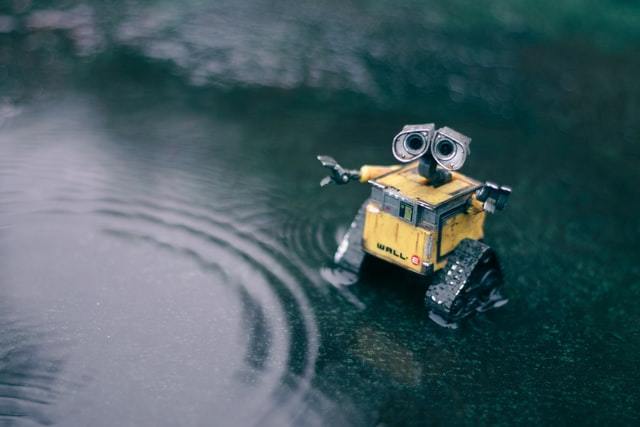Digital Love
This post is for those people who use electronics, both young and old, so everyone. The main takeaway is understanding how toxic electronics are to the environment when they're not properly recycled.
Most of us, including me, love getting a new computer or cell phone, but what happens to our old electronics when we no longer needed or wanted?
It's not just cell phones and laptops that are getting tossed, E-waste includes:
I'm focusing on the more common devices in this post, but most of the ideas presented here apply to all e-waste recycling. I have provided you with contacts for each state under, Find Where to Recycle E-Waste in Your State. Reach out to the applicable entity and see if they will take your particular type of e-waste.
E-waste by the Numbers
In 2011 in the U.S., the EPA estimates that nearly 3.4 million tons of E-waste occurred. Currently, only 25% of U.S. and 20% of international E-waste gets recycled, with the other 75% sent to landfills and incinerators. This growing dilemma is no longer just a problem in the U.S.; it's a global issue.
We scrap about 400 million units per year of consumer electronics. The shame is that many of these items are repairable. If they are beyond repair, they contain valuable materials like gold, silver, copper, platinum, palladium, iron, and aluminum that could be recycled.
$
The EPA Has Stated That If
1 Million Cell Phones Were Recycled It Would Result in the Recovery of:
33 lbs. of Palladium
75 lbs. of Gold,
772 lbs. of Silver
35,000 lbs. of Copper
Recycling electronics is not like recycling other products; they are challenging to recycle. Unfortunately, safely and adequately recycling E-waste often costs more money than the materials are worth.
Where did it Go?
What happens with the 25% that is supposedly recycled? Unfortunately, most recycling firms take the easy road; instead of recycling, they export. As a result, unwanted electronics are often donated to third-world countries in Africa and Asia. The complex web of logistics, governmental gamesmanship, and corporate maneuvering that make up the international recycling market requires a blog all in and of itself.
I spent several hours researching the international recycling trade that took me down countless rabbit holes and provided me with conflicting data. It is an interesting topic, though, which requires a deeper dive beyond this post's scope. However, if the topic interests you, I recommend researching it yourself to gain a little perspective on how massive the situation is.
Why is E-waste so Bad for the Environment?
Many deadly constituents in E-waste require careful handling; otherwise, they do immense harm to humans and the planet. Electronic waste is one of the most significant threats to the health of our environment.
Toxic heavy metals like lead, Nickle arsenic mercury, cadmium, beryllium, PVC plastic, and hazardous chemicals (such as brominated flame retardants) are some of the lovely killers hidden in electronic devices.
Exposing E-waste to heat releases toxic chemicals such as dioxins into the environment. If buried, they leach these assassins into the soil and groundwater, especially during the summer months.
E-waste adds insult to injury because electronics take much longer to decompose than other recyclables, so the toxic materials remain present in the environment indefinitely.
Studies indicate a link between E-waste in landfills and threats to human health. For example, researchers took air samples from large E-waste dismantling sites in China. They discovered that the products of recycling e-waste are detrimentally harmful to human respiratory and cardiovascular systems. This news should not be surprising to anyone.
How do we dispose of E-waste?
One of the easiest ways to dispose of E-waste is to contact a company specializing in its disposal. In addition, many E-waste services do not charge to pick up your old electronics, or alternately you can drop them off at their location free of charge.
For larger projects, specialized dumpster services can provide containers designed to hold E-waste while you contact a recycling location. As an example, Oregon E-Cycles provides free recycling of computers, monitors, and television sets.
Before E-waste is recycled, it first gets inspected to determine whether it gets refurbished or recycled. Then, once it is ready to be recycled, the device is taken apart, and the materials are organized into separate categories to determine what's useable or needs further processing.
Determining which parts can be reused or renovated is a vital part of the process because the toxic metals and chemicals need to be disposed of carefully.
Due to the toxic materials in E-waste, many waste management companies will not accept old electronics in regular trash pickup or curbside recycling services. These same poisonous materials also make it illegal to throw old electronics into the trash in many cities. To avoid being fined or contributing to environmental pollution, properly dispose of your E-waste.
Find Where to Recycle E-Waste in Your of State
Simply click on your states name to link to where and how to recycle E-waste in your area.
Note: Unlike Greywater Harvesting, 48 out of 50 states have E-waste programs, and the other two are working on it. However, even though your state may not have a program, it will likely have recycling contractors who will take your E-waste. Again, Google is your friend to help you find one in your area.
What should I do with my old cell phones?
With the rate of cell phone ownership increasing every day, replacing your old phone with the latest model has become a standard for many phone owners.
Here are some ways you can dispose of or reuse your old cell phone:
How do I properly dispose of batteries?
The proper way to throw out old batteries all depends on the type of battery you have. Alkaline batteries, the most common household battery types, are safe to throw away with your regular trash in small quantities.
However, car batteries and lithium batteries used in phones and computers- are not safe to be left in landfills.
Here are some ways you can get rid of old batteries:
Looking Forward
We need to look beyond just recycling E-waste to the issue of how quickly and the volume of which we consume electronic devices.
I know it can be a pain in the backside to use dying technology versus the adrenalin rush when we get our hot little mitts on a new piece of newness, but I think we can do better with a bit of effort.
Here are a few ideas to help you manage your devices:
Who knows what new technologies are being developed in labs to make electronic devices more sustainable, but we can't wait for those breakthroughs; we need to take responsibility now. Reducing your E-waste output shouldn't be a difficult task but rather one that gives you peace of mind for stepping up and doing your part.



